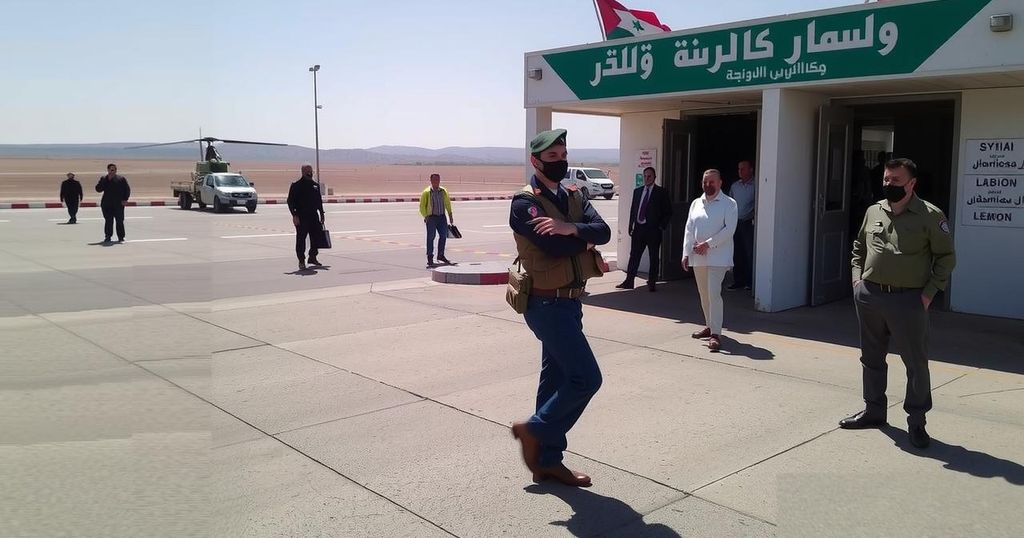Hayat Tahrir Al Sham (HTS) has established military control over critical border crossings with Jordan and Lebanon, aiming to restore normal trade and stabilize the Syrian economy. Under the leadership of Ahmad Al Shara, HTS is distancing itself from extremist ties to Al Qaeda, focusing on governance and preventing smuggling. The Jordanian military has increased reconnaissance efforts in response, emphasizing regional security concerns. HTS also expanded its influence along the Anti-Lebanon mountain range, reflecting its growing territorial control following the conflict with Bashar Al Assad.
The extremist faction Hayat Tahrir Al Sham (HTS) has recently taken control of key border crossings with Jordan and Lebanon, marking a significant shift in power dynamics in Syria following the removal of Bashar Al Assad. HTS deployed troops and military vehicles to the Nasib border crossing to the Jordanian border, seeking to normalize traffic and enhance trade, which is essential for revitalizing the Syrian economy. The HTS leadership, under Ahmad Al Shara, aims to reduce smuggling and establish a reliable governance framework, distancing the group from extremist affiliations. Jordanian forces have heightened their surveillance of the area, reflecting concerns about potential terrorism emanating from Syria. The new regime under HTS also exerts influence at the Jdeideh border crossing into Lebanon, reinforcing their military presence along the Anti-Lebanon mountain range, further consolidating their control in the region.
The establishment of military control by HTS over critical border crossings illustrates the ongoing transformation in the Syrian landscape post-civil war, which began in 2011. Once a central hub for trade and economic activities, the resurgence of a new authority in these crossings has implications for both the Syrian economy and regional security. Historically, Syria has been a vital corridor for Lebanese exports and a link between the Arabian Peninsula and Europe, underscoring the significance of HTS’s control. Their aim appears to be the restoration of trade through these crossings, which would aid in stabilizing a war-torn economy while also managing the illicit trafficking that flourished under the previous regime.
The takeover of border crossings by HTS signifies a critical juncture in Syria’s ongoing conflict and governance. As HTS seeks to position itself as a new authority, its success will depend on its ability to manage trade, prevent smuggling, and maintain stability in border regions. The response from neighboring nations, particularly Jordan, will be pivotal in shaping the future dynamics of both Syrian governance and regional security, as concerns over terrorism remain paramount. The developments at the borders underscore the fragility of the situation as the international community closely monitors HTS’s actions and intentions.
Original Source: www.thenationalnews.com






